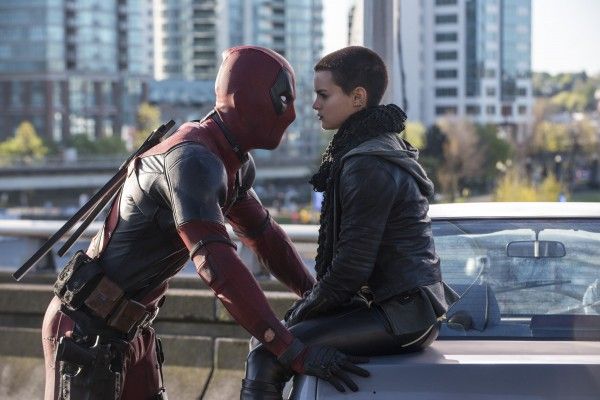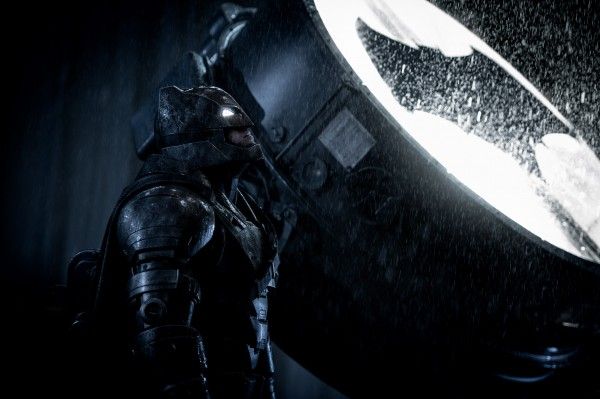It’s the first week of May, and you know what that means—the Summer Movie Season has officially begun! Or at least traditionally that was true. You see, since the dawn of Jaws in 1975, the Summer Movie Season has been a time for studios to pump out their biggest and baddest blockbusters. If you want to see every cent of your movie ticket up on the screen, summer is the time to do it. Explosions, robots, and aliens are the name of the game from May to August, and let’s not forget those caped crusaders.
However, in recent years Hollywood has seemed to be trying to get an early start on the Summer Movie Season, toying with releasing major blockbusters first in April, then in March, and now even in February. Which leads me to ask: Are we nearing the end of the Summer Movie Season as we know it?
The trend started shifting around 2010, when Disney’s CG-overloaded Alice in Wonderland landed on March 5th and went on to gross over $1 billion worldwide. Then in 2012, The Hunger Games took the world by storm, amassing nearly $700 million worldwide off its March 23rd launch, which was made all the more impressive by the fact that the film enjoyed no box office boosts from pricey 3D or IMAX tickets. It was the third highest grossing movie of the year, besting even The Hobbit: An Unexpected Journey and Skyfall at the domestic box office.
Disney had solid success again in 2013 with early March’s Oz the Great and Powerful, but 2014 was when the company got really ambitious, releasing the highly anticipated Marvel sequel Captain America: The Winter Soldier on April 4th. The gamble paid off to the tune of $714.4 million worldwide, and just last year Universal dropped Furious 7 on the same weekend and the film went on to gross an astounding $1.5 billion worldwide.
Now, box office isn’t everything, but as you can see from these numbers studios aren’t just releasing major blockbusters earlier than the traditional start of the Summer Movie Season—audiences are showing up, too. That means that folks are willing to turn out for a big, splashy $200 million movie in April just the same as in July, and 2016 pushed the limits of the traditional “Summer Movie Season” further than ever before.
This year alone, we saw a major new superhero movie called Deadpool hit theaters in February. Not only did 20th Century Fox release this risky R-rated blockbuster during a traditionally light movie month, but the film played like gangbusters, raking in over $760 million worldwide. And then, Warner Bros. dropped its biggest film of the year, Batman v Superman: Dawn of Justice, on March 23rd. Now releasing something like The Hunger Games or Alice in Wonderland in March may make sense, but releasing a film as big as Batman v Superman—which is the first time the two most iconic superheroes in history have shared the big screen—in March is simply unprecedented. The box office performance of Batman v Superman is harder to suss out given that it suffered harshly negative reviews, but regardless of expectations, $863 million worldwide is a huge number for a movie opening that early.
Looking ahead, this trend of studios releasing some of their biggest films in spring or late winter shows no signs of slowing down. In 2017, Sony drops the highly anticipated The Dark Tower—starring Idris Elba and Matthew McConaughey—in February one week after Warner Bros.’ The LEGO Batman Movie. And March 2017 looks more like June or July, as it sees the release of yet another major superhero movie, Hugh Jackman’s final go-around with Wolverine, as well as Warner Bros.’ Kong: Skull Island and Knights of the Roundtable: King Arthur as well as Lionsgate’s Power Rangers reboot and Paramount’s Ghost in the Shell movie. Then April gives us Fast & Furious 8, so by the time we’ve gotten to May 5, 2017—the release date of Marvel’s highly anticipated Guardians of the Galaxy Vol. 2—we’ll have already been through two months stacked with major blockbusters. And beyond that, February 2018 brings us Marvel’s Black Panther, and March 2018 is a new Predator movie, a The Flash movie, and Steven Spielberg’s return to the action blockbuster genre with Ready Player One.
So clearly Hollywood has no intention of moving the goal post back to May/late-April, and it’s tough to blame them. Clearly audiences are turning out for these films not only much earlier than summer, but pretty much year-round. For the past three years in a row, the highest grossing domestic film of the year has come from a film released during the November/December corridor, where blockbusters like Star Wars and The Hobbit take flight.
But is this year-round blockbuster trend a result of audiences turning up to these kinds of films pretty much at any time, or is this really a consequence of Hollywood’s output consisting of almost exclusively tentpole or IP-based material? It’s no secret that the mid-budget studio movie is a thing of the past, and as the major studios have become less keen on making adult dramas and character-centric pieces, they’ve funneled the majority of their resources into sequels to existing franchises, rebooting old franchises, or starting new franchises based on already popular source material. The result is that most of their output is now of the blockbuster variety (go big or go home), and a studio can’t release all of its movies during the summer months, thus we get things like Batman v Superman in March.
Will audiences eventually tire of blockbuster-type films flooding the marketplace? For now, the answer appears to be a resounding “no.” And as talented filmmakers like Ryan Coogler or Shane Black sign on to these types of films, attracting some of our best performers (Cate Blanchett, Tilda Swinton, and Chiwetel Ejiofor are all in upcoming Marvel movies), we’re seeing some refreshing diversification in the blockbuster formula. Still, it’s hard not to yearn for the days of something like Jerry Maguire being a big “event” film, and as superheroes and explosions continue to dominate the year-round conversation, don’t look for those days to return anytime soon.





